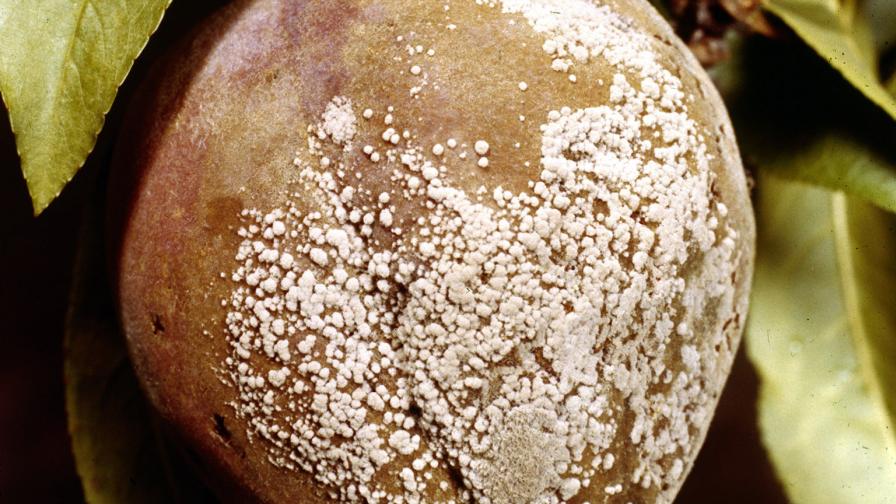The Promise Of A New Tomato Agreement With Mexico

In March, the U.S. Department of Commerce and Mexican tomato growers and exporters entered into a new agreement that “suspends the antidumping duty investigation of fresh tomatoes from Mexico that is said to meet the requirement of U.S. antidumping law, according to information released by the International Trade Administration (ITA). The previous suspension agreement dates back to 1996.
More than 600 Mexican growers and exporters are signatories to the new agreement, which covers imports of all fresh or chilled tomatoes coming from Mexico, except tomatoes for processing. Under U.S. antidumping law, the ITA states that “the suspension agreement must prevent price undercutting and price suppression in the U.S. market and eliminate at least 85% of the dumping.
Reggie Brown, executive vice president of the Florida Tomato Growers Exchange, who has been in the thick of the suspension agreement debate, says when the new agreement was being negotiated between the Mexican industry and the U.S. Department of Commerce, the domestic tomato industry had three areas of concern:
1. Not all Mexican growers were covered under the agreement. Under U.S. law only 85% of the exports from Mexico were required to be part of the agreement.
2. Reference prices needed to represent the appropriate cost of production. “The cost of production related to price should be somewhere north of 95% of the cost of growing, packing, and delivering that crop to the border,” explains Brown.
3. There was concern over how the agreement would be enforced. According to Brown, the agreement is only good if it is enforceable. He points out a positive step taken by the Mexican government when it got involved with the Mexican tomato industry and they struck a deal with the U.S. Commerce Department to create a registration and licensing process for all tomato growers and exporters.
“If they [those involved in production in Mexico] are marketers and not growers, they still fall under this Mexican regulatory scheme that would require 100% of the export product coming out of Mexico and going into the U.S. to be signatories to the agreement,” he says. “So, this eliminated the 15% slippage that historically had been there with the Commerce Department’s regulatory requirement of 85% or better.”
Established Prices
Under the new agreement prices, theoretically, should be better, too. According to Brown, the reference price historically had been a little less than 22¢ a pound for all types of tomatoes. In the new agreement, four reference prices were established.
- The field and protected culture price is 31¢ a pound in the winter and 24.58¢ per pound in the summer.
- The greenhouse, which is defined as an active controlled environment, is at 41¢ a pound in the winter and 32.51¢ per pound in the summer.
- Specialty crop product, such as grapes and cherry tomatoes, are at a reference price of 45¢ a pound in the winter and 35.68¢ per pound in the summer.
- In the specialty category for clamshell and consumer packed products that have a high cost of packaging, these tomatoes are 59¢ a pound in the winter and 46.79¢ per pound in the summer.
The Cost Of Production
The domestic industry, however, still doesn’t believe the specialty packs and the greenhouse, or controlled environment, numbers truly reflect the total cost of production, says Brown. The saving grace is that after 12 months, the Commerce Department must follow an administrative review at the request of the domestic industry.
“We intend to ask [the Commerce Department] to do that, and in that process they would be required to get cost of production data and check that data in order to establish the appropriate reference price under the statute,” he says.
Brown adds that the one major flaw in the agreement is with the winter and summer prices. Those prices, he explains, are an artifact from the early days of the agreement, going back about almost 17 years when the agreement was originally structured. This portion of the agreement provides for a reduction in the reference price for the summer period as opposed to the winter period.
“In fact, in a dumping case where margins – dumping margins – are being eliminated by the suspension agreement, there should be little or no difference in the cost of growing that product in Mexico whether it is winter or the summer,” he explains.”Hopefully when we go to an administrative review process in a year, that will be something we can encourage commerce to address.”
An Enforcement Tool
In the area of enforcing the agreement, the domestic industry now has a tool in its toolbox. Specifically, that tool revolves around the Perishable Agriculture Commodities Act (PACA), says Brown. While not part of the official agreement per se, the domestic tomato industry, with the support of Agriculture Secretary Tom Vilsack and his staff, has engaged in the process of enforcing unfair trading practices under PACA that would include attempts to circumvent the suspension agreement.
“Those attempts, if they are flagrant and repetitive, would have the potential to require the loss of the license (for that Mexican grower or marketer) to operate in the United States,” he adds.”This is a step forward in terms of enforceability. Historically the Commerce Department and the Customs Department had been the enforcing agencies, and although they tried diligently to enforce the deal – combined with the 15% or so of non-participants – it had always created an undercurrent in the U.S. of this underselling or circumventing of the agreement.”
With 100% participation structured by the Mexican government and the use of PACA as an enforcing mechanism, Brown says the agreement has the potential to be much more aggressively enforced than it has in the past.
“I don’t want anyone’s skin hung on the wall, but I hope that if someone tries to circumvent the law, they are ferreted out and punished severely. This goes for those on both sides of the agreement, and it would encourage all to abide by the law.”
Feedback From U.S. Growers On The Tomato Agreement With Mexico
When asked what U.S. tomato growers are saying about the new agreement, Reggie Brown, executive vice president of the Florida Tomato Growers Exchange, says it has been a mixed bag of responses. “The greenhouse industry is frustrated, as those numbers [prices] are low, and I think the specialty crop item producers are frustrated that the price is low, too. Plus, all of the shade cloth/protected culture products are now lumped into the field category.
In addition, Brown says there is concern over the active enforcement process and that the domestic industry will need to be vigilant for violations. Brown encourages anyone involved in a situation that appears to be in violation of the agreement to report the problem to Commerce or to the Florida Tomato Exchange. (Growers can contact Brown at [email protected] for more information.)
“There is no such thing as a “win” in these kinds of things,” he concludes. “Though, this is a move in the right direction.”










